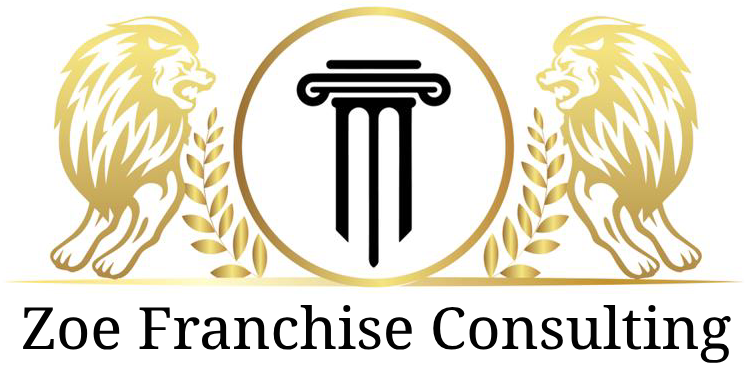In the dynamic landscape of business, franchising has emerged as a powerful model for expansion and entrepreneurship. Entrepreneurs seeking to venture into the realm of franchising or existing franchise owners aiming to streamline their operations must understand the critical component of franchise operating procedures. These procedures serve as the blueprint for success, ensuring consistency, efficiency, and compliance across all franchise units. In this comprehensive guide, we delve into the intricacies of franchise operating procedures, shedding light on their significance, components, and best practices.
Understanding Franchise Operating Procedures
Franchise operating procedures encompass a set of guidelines, protocols, and protocols designed to govern every aspect of a franchise’s operations. From day-to-day tasks to overarching business strategies, these procedures serve as the backbone of franchise management. They provide a standardized framework that ensures uniformity and quality across all franchise units, regardless of location or size.
Key Components of Franchise Operating Procedures
- Franchise Development: The process of franchise development involves identifying potential markets, recruiting franchisees, and facilitating the expansion of the franchise network. Operating procedures in this realm include lead generation strategies, qualification criteria for franchise candidates, and the execution of Franchise Disclosure Document (FDD) and franchise agreements.
- Franchisee Training: Equipping franchisees with the knowledge and skills necessary to operate their units successfully is paramount. Operating procedures related to training encompass initial onboarding, ongoing education, and continuous support to ensure franchisees adhere to brand standards and operational protocols.
- Franchise Operations Manuals: Comprehensive operations manuals serve as a repository of information, outlining standard operating procedures (SOPs) for every facet of the business. From inventory management to customer service protocols, these manuals provide step-by-step guidance to franchisees, fostering consistency and adherence to brand standards.
- Franchise Feasibility: Prior to launching a new franchise unit, thorough feasibility analysis is imperative. Operating procedures in this domain involve market research, financial projections, and risk assessment to determine the viability and potential success of a franchise venture.
- Compliance and Legalities: Franchise operating procedures must also address legal and regulatory compliance, ensuring adherence to local, national, and international laws governing franchising. This includes the proper execution of franchise agreements, FDD disclosures, and ongoing compliance monitoring to mitigate legal risks.
- Quality Assurance: Maintaining consistency and quality across all franchise units is essential for upholding brand reputation and customer satisfaction. Operating procedures related to quality assurance encompass regular audits, performance evaluations, and feedback mechanisms to identify areas for improvement and ensure operational excellence.
Best Practices for Developing Effective Franchise Operating Procedures
- Customization: While maintaining consistency is crucial, franchise operating procedures should also allow for flexibility to accommodate unique market dynamics and individual franchisee needs. Tailoring procedures to specific locations or market segments can enhance relevance and effectiveness.
- Clear Communication: Transparent communication is key to ensuring franchisees understand and adhere to operating procedures. Providing clear instructions, accessible documentation, and ongoing support fosters accountability and alignment with brand standards.
- Continuous Improvement: Franchise operating procedures should be viewed as living documents that evolve with the changing needs of the business and industry landscape. Regular review and updates based on feedback, market trends, and emerging best practices are essential for staying ahead of the curve.
- Training and Education: Investing in comprehensive training programs for franchisees and staff is essential for ensuring adherence to operating procedures. Ongoing education and skill development empower franchisees to navigate challenges effectively and uphold brand excellence.
- Technology Integration: Leveraging technology tools and platforms can streamline operations, enhance communication, and facilitate compliance monitoring. From point-of-sale systems to digital training modules, embracing technological advancements can drive efficiency and scalability in franchise operations.
Conclusion
In the realm of franchising, mastering operating procedures is synonymous with success. By establishing clear guidelines, fostering adherence to brand standards, and prioritizing continuous improvement, franchisors can empower franchisees to thrive in competitive markets. As the franchising landscape continues to evolve, staying abreast of emerging trends and best practices is essential for sustaining growth and maximizing franchise potential. By embracing the principles outlined in this guide, franchisors can navigate challenges with confidence and propel their franchise networks to new heights of success.
In the ever-evolving world of franchising, mastering operating procedures is a pivotal step toward success. Through clear guidelines, adherence to brand standards, and a commitment to improvement, franchisors empower franchisees to thrive. As the industry progresses, staying updated on trends and best practices ensures sustained growth. Embrace these principles to navigate challenges and propel franchise networks to new heights.




